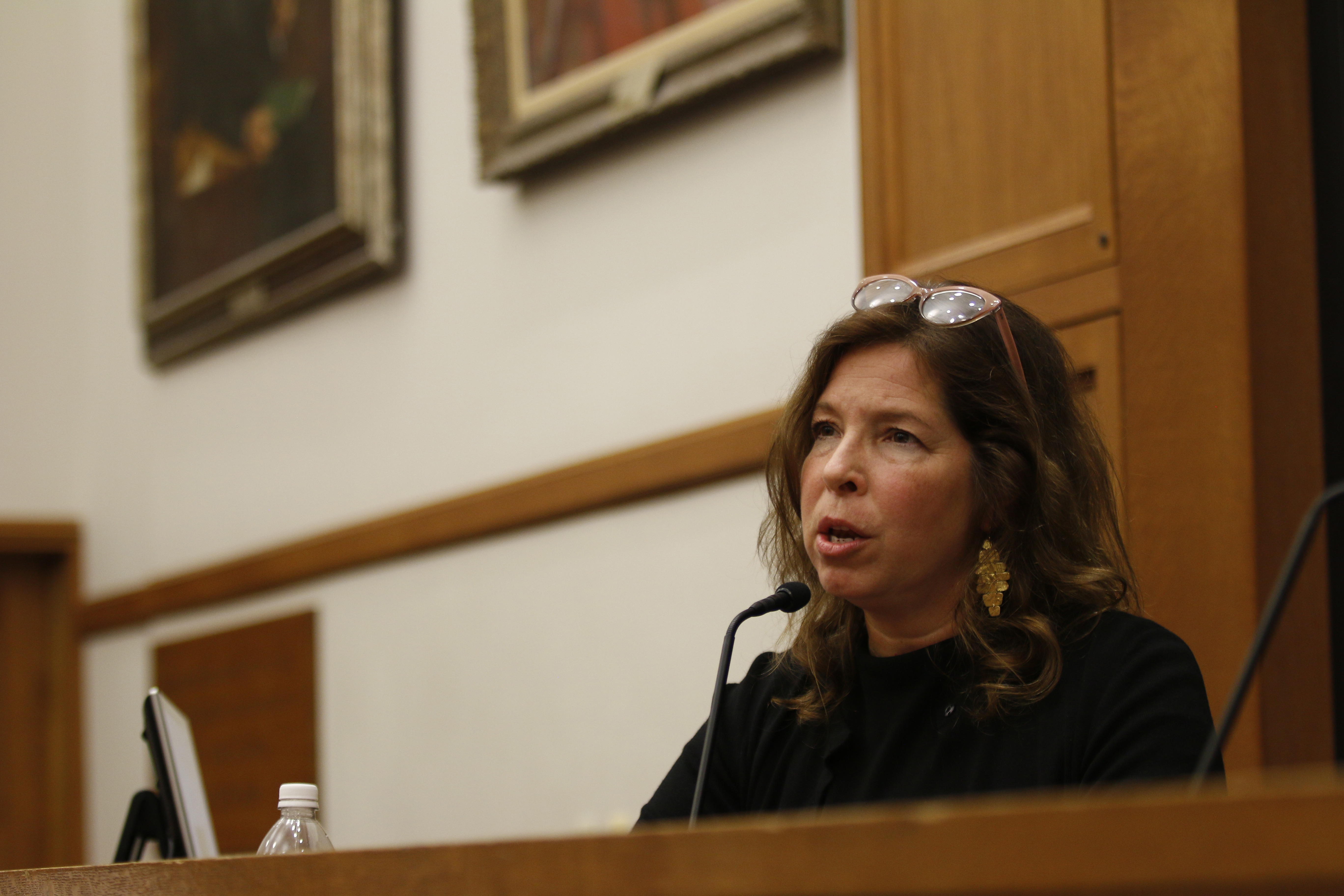
Art plays a role in shaping society and politics, a point that director of the Brooklyn Museum Anne Pasternak drove home at a discussion about public art hosted at Yale Law School Wednesday night.
Addressing a crowd of roughly 200 students and New Haven residents, Pasternak emphasized the role of museums as safe spaces for political discussion. The talk was held by JUNCTURE, a yearlong initiative in art and human rights through the Orville Schell Center for International Human Rights at the Yale Law School. The event was conducted in an interview format, with David Kim LAW ’17, deputy director and curator of JUNCTURE, posing questions.
“Art can tell us about where we come from and where we might go,” Pasternak said. “I believe art is a thing of beauty and wonder that can hold a mirror to our past and present.”
She also highlighted the ability of art to change the status quo, make political assertions and bring about real social changes. As she began speaking, a quote from Martin Luther King Jr. was projected onto the screen behind her, echoing her opinion on art’s power in pushing for socio-political movements: “We must use time creatively and forever realize that the time is always ripe to do right.”
James Silk LAW ’89, clinical professor of law and director of the Schell Center, opened the talk by discussing the relationship between arts and human rights, the variety of ways the two areas intersect and the ethical and social issues they raise.
When Pasternak was young, she said, her father used to give her family history lessons over dinner, which she found a bother as a child. As she matured and came to realize the value of those conversations in shaping her worldview, she recognized that both action and inaction matter a great deal.
Quoting Abraham Lincoln, Pasternak pointed out how artists are taking a more active role in driving public sentiment. She also spoke to the role of museums, including the Brooklyn Museum, as public institutions with the responsibility to serve as a forum for open conversation, promoting social justice, dismantling oppression and influencing history.
“Art museums must connect the radical past with the radical present,” Pasternak said. She also referenced contemporary artists who produced work that made a political impact, including installation and performance artist Tania Bruguera, whose work revolves around the topic of power and control.
Kim opened the interview with a question about the role of museums in their immediate communities, which Pasternak responded by the example of the Brooklyn Museum. She discussed how central Brooklyn is fraught with struggles, especially segregation and gentrification, and her museum’s role in providing a platform for discussions on those issues.
She highlighted the significance of participating in such conversations, regardless of diversity or potential resistance, as these exchanges help humanity better understand itself. Pasternak added — using the example of the controversial reorganization of the Brooklyn Museum that she launched — that there is no right, singular way to bring about changes and that steps towards change are often seen as an affront to society.
Kim ended the session by asking Pasternak for her opinion about the recent controversies surrounding slave-themed window panels and artifacts in Calhoun College. She emphasized the importance of thoughtful debates regarding context and history, as well as the opportunity for everyone to share their opinions about these issues.
“Many people who speak about art speak in an inaccessible art theory language, but Pasternak spoke with humility, honesty and clarity,” Silk said.
Kim said it is important to ask “large questions” such as “What is the relationship between art and social justice?” and “What can art do in the world?” because these questions allow one to explore the “full space of possibility between human rights advocacy and art.”
“We can all do more, and we absolutely must do more,” Pasternak said.
Correction, Sept. 30: A previous version of this article misstated the name of the Orville Schell Center for International Human Rights.







